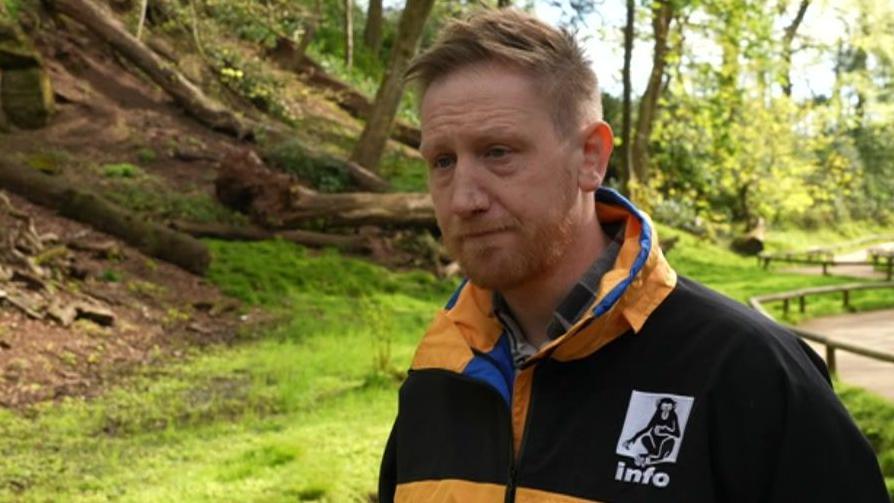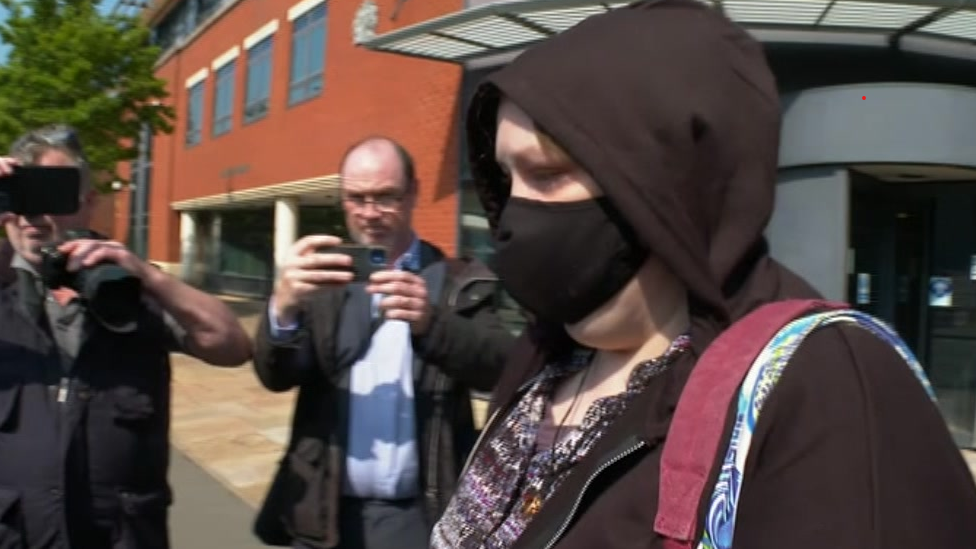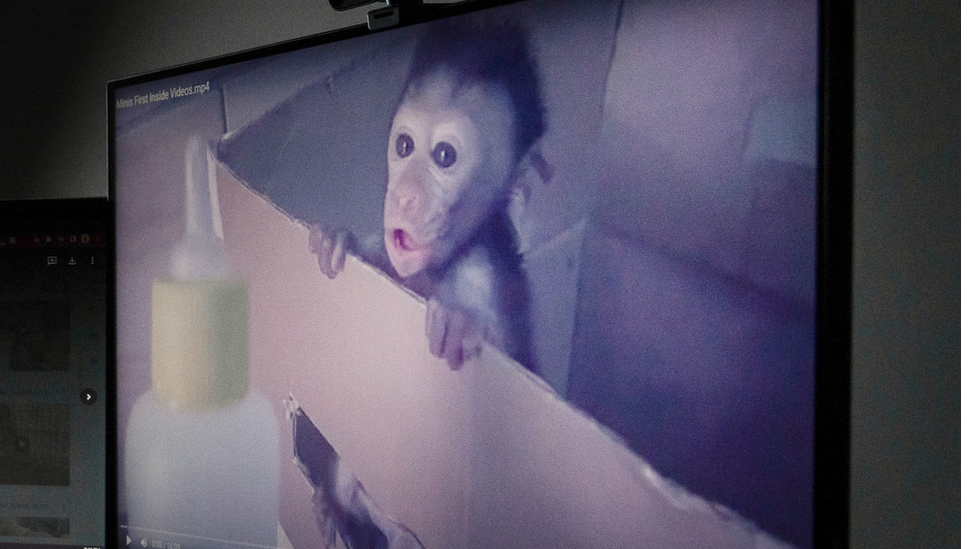Social media users warned over 'pet monkey' videos
Conservationists have called on people not to share footage of monkeys being used as pets
- Published
Social media users have been warned not to engage with videos of monkeys being used as pets or props.
Matt Lovatt, park director at Trentham Monkey Forest near Stoke-on-Trent, said such footage of primates was “not something we should celebrate”.
His warning came as Holly LeGresley, from Kidderminster, Worcestershire, was convicted for being part of an online group paying people to kill and torture baby monkeys on video.
The 37-year-old pleaded guilty to charges of consuming, causing and facilitating the torture of baby monkeys over the internet at Worcester Magistrates’ Court on Tuesday.
Warning - this story contains distressing content
Speaking to BBC Midlands Today, Mr Lovatt said the wider issue regarding footage of monkeys came with the emergence of social media.
He said it had led to videos being posted of people using primates as pets, sometimes dressing them up in clothes – a practice which he said needed to stop.
“Ourselves and most of the people within our industry in the UK are advocates for not showing primates being used as pets,” he said.
“Please don’t share those videos more widely. It’s not something we should celebrate. We should celebrate being able to watch or observe them and still find joy in the fact they are so similar to ourselves.”

Matt Lovatt, of Trentham Monkey Forest, warned social media users over sharing footage
LeGresley was part of a group on the messaging app Telegram that brainstormed, crowdfunded and commissioned videos of monkeys being tortured by people in Indonesia.
The group was used to share ideas for custom-made torture videos such as setting live monkeys on fire, injuring them with tools and even putting one in a blender.
The ideas were then sent, along with payments, to video-makers in Indonesia who carried them out, sometimes killing the baby long-tailed macaque monkeys in the process.
LeGresley’s conviction came after a one-year investigation by the BBC Eye team. She is due to be sentenced on 7 June.

Holly LeGresley admitted her role in the online network
Trentham Monkey Forest has about 140 barbary macaque monkeys roaming its 60-acre wooded site – the largest collection in the UK.
The endangered species had seen its worldwide population decrease by more than 50% in the last 40 years.
Mr Lovatt said this was due to factors like deforestation and the loss of habitat.
“We’re allowing primates to live as similar lives to wild [primates] as is probably possible,” he added.
“They get all the perks of living like a wild primate but without having to face predators, lack of food resources, things like that.”
Follow BBC West Midlands on Facebook, external, X,, external and Instagram, external, Send your story ideas to: newsonline.westmidlands@bbc.co.uk, external
Related topics
- Published7 May 2024
